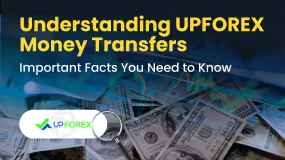Abstract:The forex market no doubt offers the trader an opportunity to trade not just foreign currencies (Forex) alone but also other very volatile Commodities such as Gold, Silver and Crude oil. A cross study of the pairs traded most by South African traders show that the majority of South African traders are high risk traders preferring commodities over forex pairs. This is based on the huge profits offered by these pairs.
By: Chime Amara

Apart from trading foreign currency pairs such as EURUSD, GBPUSD, EURJPY, etc. It is also possible to trade other financial instruments outside these such as: Commodities, Stocks, Indices and Crypto. Out of these lists, it was discovered from the research conducted by global forex researchers that the majority of South African traders preferred Commodities over Forex pairs. The reason for this among others could be traced to it's strong volatile nature. The majority of the South African traders were discovered to be high risk traders preferring commodities to Forex pairs.
What are Forex Pairs?
The major business of Forex trading is no doubt exchange of foreign currencies. The forex pairs traded in the market today are broadly grouped into three as: Major pairs, minor pairs and exotic currencies. Examples are: EURUSD, GBPCAD and EURNOK.
What are the Commodities available for trading today?
Commodities are physical assets with great volatility traded as CFD in the Forex market today. The three major commodities traded in the market today are: Gold, Silver and Crude oil.
Why do South African traders prefer Commodities to Forex Pairs?
There are many possible reasons why South African traders prefer trading Commodities over Forex pairs. The most dominant reasons for this could be seen below:
A. Volatility
The major reason why people preferred Commodities to Forex pairs is because of its rapid price movements. The major aim of Forex trading for day-traders and scalpers is to maximize profits from the market movements. This desired rapid movements calculated as Percentage Profits (PIPs) is experienced more on the Commodity pairs. To this end, commodities have become the most preferred by high risk traders who dominate the South African market today.
B. Hunger for quick profits
A great majority of South African traders are Scalpers and day-traders seeking for quick profits every day. This is why most of the South African traders are today attracted more to very volatile pairs as: XAGUSD, XAUUSD and Crude oil. These pairs are known to move averagely 100- 300 pips daily depending on the fundamental factors moving them.
C. High Risk Traders
Most South African traders perceive forex trading as a get-rich-quick business. This have made them high risk traders seeking quick profits from the market every day.
D. Easy to Master
Commodities pairs are one of the simplest to master based on the fact that they are moved basically by fundamentals. The strength or weakness of the USD dollar determines the general trend for the Commodity pairs. This is no doubt why most traders prefer Commodities to Forex pairs.
E. Good Liquidity
This is always a strong liquidity available for trading the three major commodity pairs. This is so because the greatest number of investors trade these pairs daily. Orders are easily matched with very little slippage.










